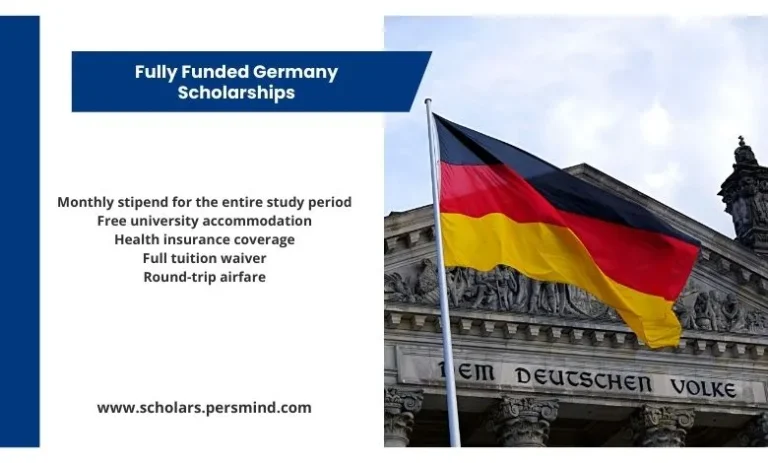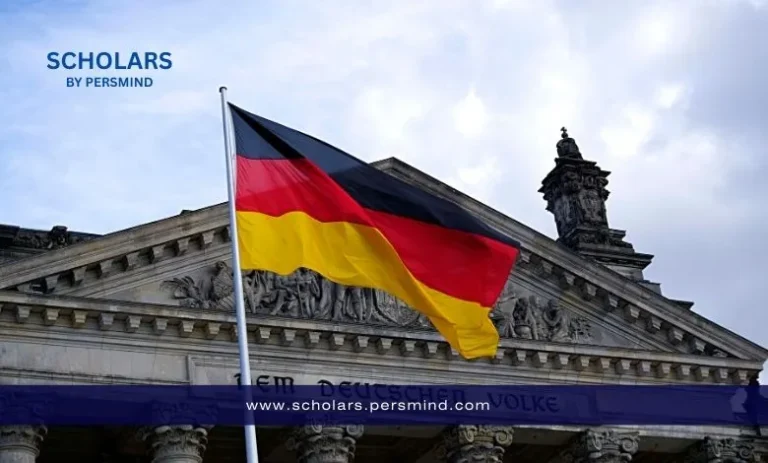The DAAD Individual Research Grants are among the most prestigious international funding opportunities for advanced master’s research and doctoral studies in Germany. The program offers four main tracks, allowing flexibility according to your research goals:
Short-Term Research Grant (2–6 months)
One-Year Research Grant (7–12 months)
Full Doctoral Program in Germany (up to 4 years)
Bi-nationally Supervised Doctorate (Cotutelle Program)
Funding covers a monthly stipend, health insurance, travel allowance, and additional benefits depending on the call and year.
The DAAD clearly states that late 2025 applications for some tracks are expected to begin funding in 2026, making early planning essential.
Why Choose DAAD for Your Research?
Flexible pathways: from a short research visit to a full PhD or a jointly supervised doctorate between your home and German universities.
Transparent funding: monthly stipend + insurance + travel allowance + one-time research grant (amounts published per call).
Institutional credibility: DAAD is Germany’s largest public scholarship provider, non-repayable, and subject to rigorous academic evaluation.
Types of DAAD Individual Research Grants
1. Short-Term Research Grants
Duration: 2–6 months for conducting part of your research project at a German institution.
Target group: Doctoral candidates in the early or mid-stages of their PhD, and in some cases, early postdocs (depending on the call).
Funding: Monthly stipend, insurance, and travel allowance — updated annually on each call’s webpage.
Notes: Can be applied for multiple times (once per year). Cannot be combined directly with another long-term grant within the same academic period.
2. One-Year Research Grants
Duration: 7–12 months, renewable in exceptional cases. Typically used for a key phase of doctoral research or to establish a new project.
Funding: According to DAAD guidelines, usually €1,200/month for doctoral candidates, plus insurance, travel allowance, and one-time research grant. Some 2025/2026 calls show €1,400/month — always follow the current call for your country.
3. Research Grants – Doctoral Programmes in Germany
Duration: Up to 4 years (initially granted for one year, renewable based on performance).
Funding: Monthly doctoral stipend (based on current year’s rate) + insurance + travel allowance + possible language and family support.
Additional benefits: German language courses before or during the stay, family allowances (if applicable under DAAD regulations).
4. Bi-nationally Supervised Doctorates (Cotutelle)
Concept: Conduct your PhD jointly between your home institution and a German university, with extended or split research stays in Germany and a co-supervised dissertation.
Duration: Typically 7–24 months of funded stay, depending on your joint doctoral plan.
Note: Exact durations, eligibility rules, and stipend values vary by call and country — always consult the DAAD Scholarship Database for the official 2026 announcement in your region.
What Does the Funding Include?
Monthly stipend for doctoral candidates: Commonly €1,200 (some calls show €1,400 for 2025/2026 — check your official call).
Comprehensive health, accident, and liability insurance during the research stay.
Travel allowance (amount based on country of origin).
One-time research allowance (Research Grant).
German language support (optional courses as required by the program).
⚠️ Important: Grant amounts and terms are updated annually — always rely on the official call for 2026 when applying.
Who Can Apply?
Eligible applicants: Doctoral candidates (enrolled or prospective) and early-career researchers from nearly all countries (some local variations may apply).
Fields: Open to most disciplines — STEM, Social Sciences, and Humanities — provided you have a confirmed academic host or supervisor in Germany and a clear research plan.
Language: Ability to conduct research in English and/or German depending on the field and supervisor’s agreement.
Restrictions: You cannot combine two long-term DAAD or other scholarships (≥7 months) within the same academic period.
Duration & Timeline
Short-Term Grants: 2–6 months (once per year; can reapply in future years).
One-Year Grants: 7–12 months (renewable depending on progress).
Full Doctoral Grants: Up to 4 years (renewed annually).
Application deadlines: vary by country/office. Some 2025 calls specify that funding begins in 2026 — always verify in your country’s database entry.
Required Documents
Updated academic CV
Research Proposal (problem, objectives, methods, timeline, expected results)
Academic recommendation letters (1–2, using DAAD templates)
Invitation or supervision confirmation letter from a German professor/research group (or proof of ongoing correspondence)
Academic transcripts and degree certificates (with certified translations)
Language certificate (if required)
Valid passport copy
Tip: Check your local DAAD office checklist for exact requirements (document length, formats, etc.).
How to Build a Competitive Application
Clear relevance: Link your past experience to your proposed project using the Problem → Method → Result framework, with verifiable outputs (links, publications, posters).
Strong supervisor match: Identify a German professor whose research aligns with your topic and demonstrate the added value of your collaboration.
Realistic timeline: Present a month-by-month plan detailing achievable goals within your funding period.
Ethics and data: Mention research approvals or data access plans if applicable.
Professional language: Show your linguistic readiness (German or English), and indicate any ongoing or planned language learning.
Application Steps
Search the DAAD Scholarship Database for your 2026 call (Short-Term, One-Year, Full Doctorate, or Cotutelle).
Contact a potential supervisor in Germany with a concise 1-page email + CV + short project summary.
Complete the DAAD online application form and upload all documents before the deadline (regional variations may apply).
Selection process: Applications are evaluated on academic quality, feasibility, relevance, and language readiness.
After acceptance: You’ll receive detailed instructions for visa, travel, insurance, and accommodation, along with your final grant and travel allowance details.
Frequently Asked Questions (FAQ)
Are PhD tuition fees covered?
Yes. Doctoral studies at German public universities are typically tuition-free for the first six semesters; your living expenses are covered by the DAAD grant.
Why do I see €1,200 in some calls and €1,400 in others?
DAAD updates stipend rates annually, which may vary by year and country. Always follow your country-specific 2026 call as the final reference.
Can I combine two long-term grants?
No. DAAD prohibits combining scholarships or research grants lasting 7+ months within the same academic year.
Are there alternative DAAD programs?
Yes — such as DLR-DAAD, Graduate School Scholarship Programme (GSSP), and Development-Related Postgraduate Courses (EPOS) — but this guide focuses on individual research grants.
Official Sources
Conclusion
Is your research project ready to take off in Germany?
Choose the appropriate DAAD pathway — Short-Term, One-Year, Full PhD, or Bi-national Supervision — and consult your country-specific 2026 call in the DAAD database. Contact your prospective supervisor with a refined CV and research proposal, and apply early, as many 2025 calls stipulate funding start dates in 2026 with rigorous competition.




0 Comments